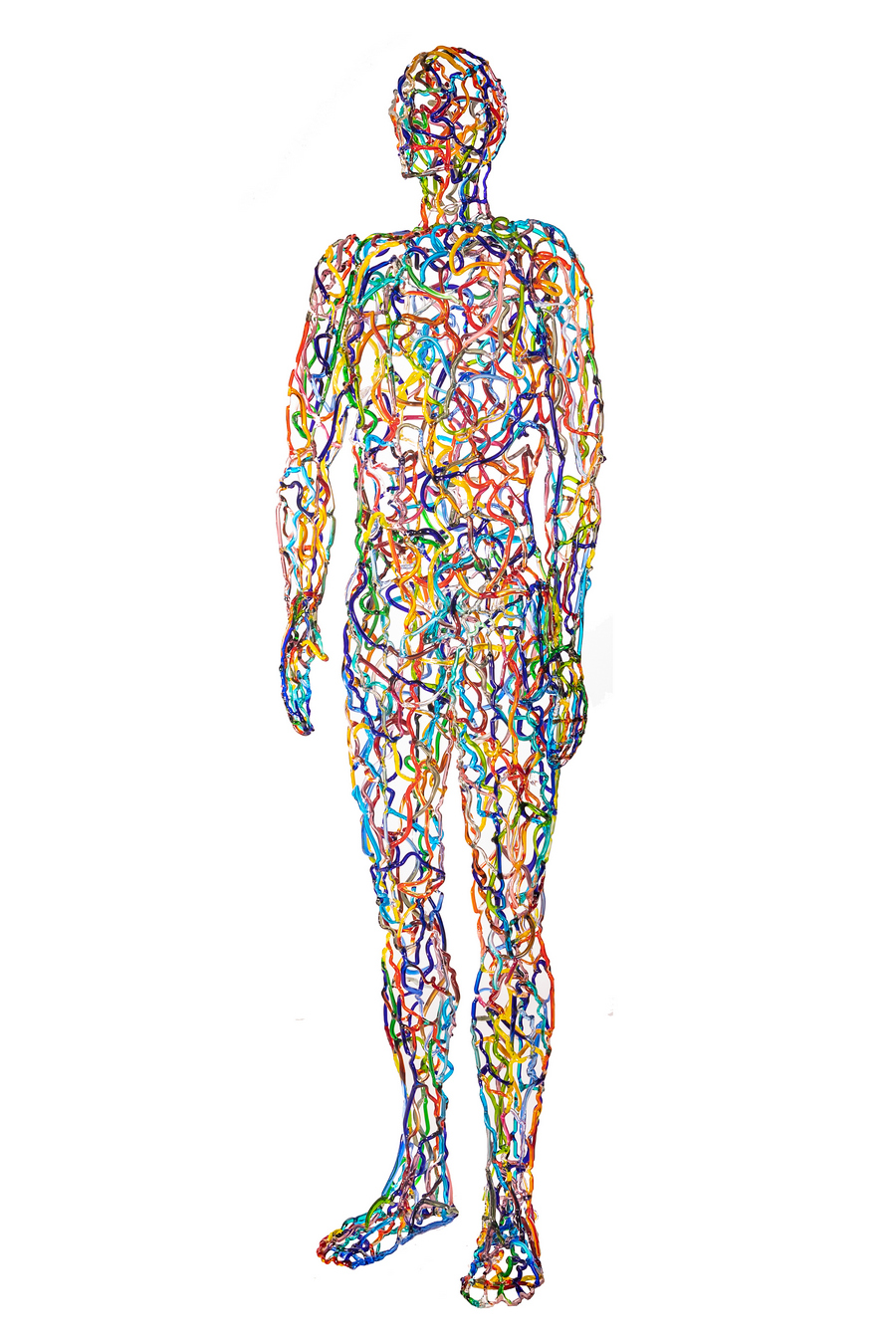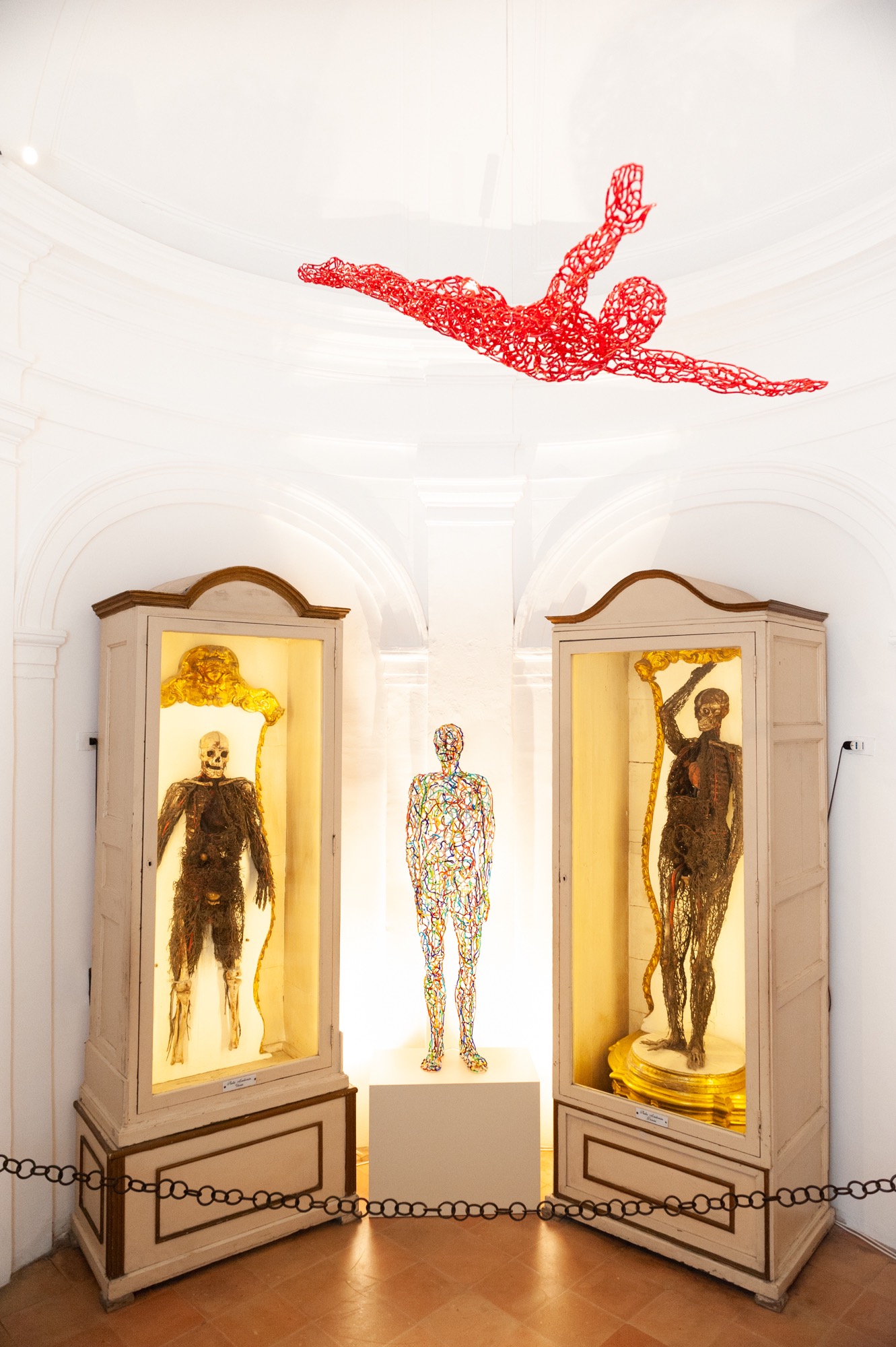Mauro Bonaventura has always been fascinated by God’s most mysterious machine: man. He tells his stories as if glass were
ink, using the flaming cannula as a pencil. Like a vascular surgeon,
he studied anatomy to reproduce a coherent synthesis of our
arterial system in glass. The Prince succeeded in endowing this
place with immortality. Still, he could never have imagined that
it would one day host anatomical machines in glass, at the
same time poetic and scientific.
As he found himself specializing in glass sculpture, Mauro
Bonaventura, a trained electronics expert, felt the need for a fuller
education, so he attended evening Art School for four years,
systematically studying art history, life drawing, the plastic arts, and
sculpture. Over the years, he has refined his technique to forge
his own unmistakable style. In the underground cavea of the
Sansevero Chapel, next to the two Anatomical Machines,
Mauro Bonaventura exhibits Homo erectus, a complex
polychrome glass sculpture, and Flying, the red diver, reminiscent
of the Tomb of the Diver in Paestum (5th century BCE).
What an emotional experience it is for Mauro Bonaventura
to be next to Giuseppe Sanmartino, who carved the marble
in the same way the Prophets spoke and wrote, i.e., in a trance,
inspired by God! The atmosphere wrought by the art in this
place is indeed divine. People visiting the chapel emerge
astonished and taken aback as if they have had the most
psychedelic of trips. Antonio Canova, it is said, would have
given ten years of his life to have sculpted the Veiled Christ.
Returning to the Anatomical Machines: can a cardiovascular
system be a work of art? Yes, it can, as the work of Mauro
Bonaventura demonstrates. Today, in the third millennium,
he has succeeded in imparting a lesson in aesthetic anatomy
full of ancient alchemical echoes.
Jean Blanchaert









